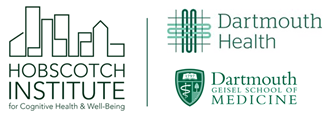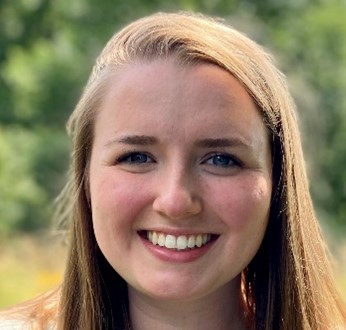
Beyond Seizures and Epilepsy: Community Health Worker Training
Did you know....
- Approximately 3.4 million people in the US live with active epilepsy.
- 1 in 26 people will develop epilepsy during their lifetime
- 1 in 10 people will experience a seizure during their lifetime

Register
Course Information
- Audience: Community health workers, patient navigators, nurses, multilevel primary and behavioral health care providers, social workers, health educators
- Format: Webinar
- Date/Time: Thursday, February 16th 2023 12:00 PM – 1:00 PM EST.
- Price: Free
- Length: 1 hour
- Credential(s) eligible for contact hours: Sponsored by New England Public Health Training Center (NEPHTC), a designated provider of continuing education contact hours (CECH) in health education by the National Commission for Health Education Credentialing, Inc. This program is designated for Certified Health Education Specialists (CHES) and/or Master Certified Health Education Specialists (MCHES) to receive up to 1 total Category I continuing education contact hours. Maximum advanced-level continuing education contact hours are 0. Provider ID: 1131137 Event ID: PM1131137_02162023.If you are not seeking a CHES/MCHES contact hours, if you complete the post-test and evaluation, you will receive a Certificate of Completion. The Certificate will include the length of the course.
- Competencies: Community Partnership Skills
- Learning Level: Performance
- Companion Trainings:
An Overview of Epilepsy and Self-Management Virtual Training
Training Length: 4 hours
Cost: Free
Course Director: Elaine T. Kiriakopoulos, MD, MSc
To learn more visit: https://www.dartmouth-hitchcock.org/hobscotch-institute/community-training - Supplemental materials:This training delivers learning that address:
- Overview of Epilepsy & Seizures
- Treatment Considerations in Epilepsy
- Comorbidities in Epilepsy
- Chronic disease management & self-management
- Case Studies in Epilepsy Learning Outcome: Participants will report a change in practice related to assisting individuals and families impacted by epilepsy.
- Pre-requisites: None
About this Webinar
Seizures and epilepsy can occur with comorbid neurologic and psychiatric disorders including stroke, traumatic brain injury, Alzheimer’s disease, brain tumors, migraine, multiple sclerosis, autism, anxiety, and depression.
Learn about epilepsy,
its treatment, its relationship to other common neurologic conditions, challenges individuals and families with epilepsy face and how to assist people better manage their disease and lifestyle to lessen the impact of epilepsy.
Faculty deliver live interactive virtual training that provides an overview of epilepsy, common comorbidities in epilepsy, available treatments, lifestyle and disease management considerations and an introduction to evidence-based epilepsy self-management programs.
What you'll learn
At the end of the webinar, participants will be able to:
- Discuss seizures, epilepsy and how epilepsy is diagnosed and treated
- Recognize the relationship between seizures, epilepsy, and comorbid neurologic and psychiatric conditions
- Understand common challenges individuals and families impacted by epilepsy face
- Identify epilepsy self-management programs and assistance available to individuals with epilepsy to help them better manage their disease and lifestyle to lessen the impacts of epilepsy
Subject Matter Experts

Elaine Kiriakopoulos
MD, MSc
Trina Dawson
BA, CHW
Anna Murray
BA, CHW
Dr. Elaine Kiriakopoulos is an Assistant Professor of Neurology at the Geisel School of Medicine at Dartmouth College, a neurologist and public health educator, and the Director of the HOBSCOTCH Institute for Cognitive Health and Well-Being and the Community Epilepsy & Self-Management Training Center at the Dartmouth Health. At Dartmouth, she leads efforts aiming to expand epilepsy education for health professionals and has developed and led interactive virtual epilepsy education and training for community health workers and primary care providers in partnership with the Centers for Disease Control and Prevention.
Trina Dawson is the Project Coordinator for the HOBSCOTCH Institute for Cognitive Health and Well-Being at Dartmouth-Health. She received her BA from Plymouth State University in Psychology. In this role she assists in the delivery and support of Epilepsy & Self-Management Community Health Worker Training and participates as a Cognitive Coach in self-management program delivery to patients. Prior to joining Dartmouth Health, Trina worked as a Community Health Worker in a rural healthcare center setting and was responsible to connect individuals and families with resources such as food, housing, transportation, medical care, and mental health services.
Anna Murray is a Community Health Worker in the Department of Neurology at Dartmouth Hitchcock Medical Center. Currently, in her CHW role she works with patients with neurologic disease to address social determinants of health and connect them with resources in the community to meet their needs. As a CHW at an academic medical center her role is integrated with nurses, physicians, and social workers in a team-oriented approach to improving health outcomes and quality of life for patients. Anna has received certification to serve as an Epilepsy Self-Management Coach broadening her CHW skillset and enabling her to assist this patient population build key chronic disease self-management skills in their homes and diverse communities.
Registration
Select the Enroll Me button below to register for this recording. If you have any trouble accessing the recording, contact support@nephtc.org.
Acknowledgement: This project is supported by the Health Resources and Services Administration (HRSA) of the U.S. Department of Health and Human Services (HHS) as part of award 2 UB6HP31685‐05‐00 “Public Health Training Centers.” The contents are those of the author(s) and do not necessarily represent the official views of, nor an endorsement, by HRSA, HHS or the U.S. Government.

